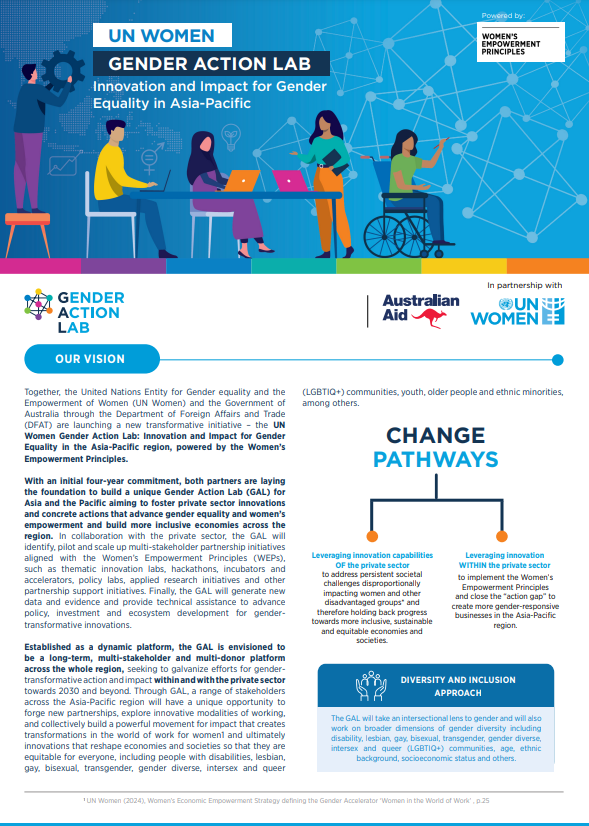
UN Women Gender Action Lab: Innovation and Impact for Gender Equality in Asia-Pacific

Together, the United Nations Entity for Gender equality and the Empowerment of Women (UN Women) and the Government of Australia through the Department of Foreign Affairs and Trade (DFAT) are launching a new transformative initiative – the UN Women Gender Action Lab: Innovation and Impact for Gender Equality in the Asia-Pacific region, powered by the Women’s Empowerment Principles.
With an initial four-year commitment, both partners are laying the foundation to build a unique Gender Action Lab (GAL) for Asia and the Pacific aiming to foster private sector innovations and concrete actions that advance gender equality and women’s empowerment and build more inclusive economies across the region. In collaboration with the private sector, the GAL will identify, pilot and scale up innovative multi-stakeholder partnership initiatives aligned with the Women’s Empowerment Principles (WEPs), such as thematic innovation labs, hackathons, incubators and accelerators, policy labs, applied research initiatives and other partnership support programmes. Finally, the GAL will generate new data and evidence and provide technical assistance to advance policy, investment and ecosystem development for gender-transformative innovations.
Established as a dynamic platform, the GAL is envisioned to be a long-term, multi-stakeholder and multi-donor platform across the whole region, seeking to galvanize efforts for gender-transformative action and impact within and with the private sector towards 2030 and beyond. Through GAL, a range of stakeholders across the Asia-Pacific region will have a unique opportunity to forge new partnerships, explore new and innovative modalities of working, and collectively build a powerful movement for impact that creates transformations in the world of work for women and ultimately innovations that reshape economies and societies so that they are equitable for everyone, including people with disabilities, lesbian, gay, bisexual, transgender, gender diverse, intersex and queer (LGBTIQ+) communities, youth, older people and ethnic minorities, among others.
For more information or to express an interest in participating, please contact [ Click to reveal ]